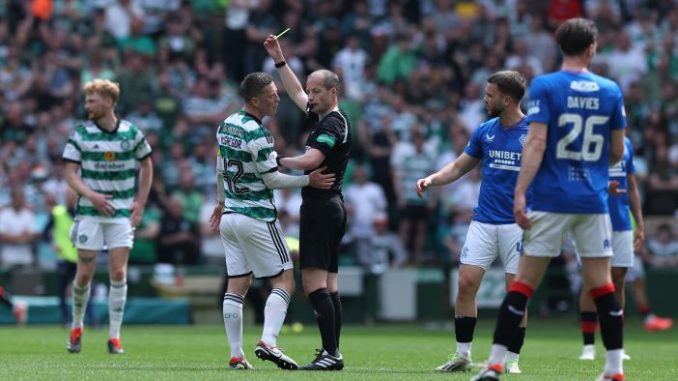

It sounds like there’s significant controversy surrounding the incident involving referee Willie Collum and Rangers player Tom Lawrence. The suggestion that the referee was coaching Lawrence through a tackle, and then seemingly providing a misleading post-tackle explanation to Ross County players, has sparked reactions from fans and pundits alike.
If the claims of biased communication or incorrect decisions are true, this could reignite debates about the standards of officiating in Scottish football. Referees are expected to remain neutral, and any perception of favoritism, whether intentional or not, can erode trust in the integrity of the game. Given that replays reportedly show no contact, the incident has also brought the accuracy of officiating and VAR decisions into focus.
Willie Collum’s admission of error could be seen as an attempt to mitigate the fallout, but the situation likely adds pressure on officials to improve decision-making and transparency as the season progresses.
This controversy reflects long-standing concerns about the consistency and transparency of refereeing in Scottish football. The comparison to the 2017 rugby incident, where French referee Romain Poite famously responded that he was “a referee, not a coach,” underscores the idea that match officials should not be seen as offering guidance to players, especially in real-time tactical decisions.
In contrast, the actions of referee Ross Hardie in the Rangers game, where he seemed to provide unsolicited advice to Tom Lawrence about timing a tackle, raised questions about impartiality and whether referees should be involving themselves in players’ decisions. The subsequent failure to penalize a tackle from behind that led to a Rangers goal further fueled suspicion among fans, especially given that VAR was unable to intervene due to technicalities about the phase of play.
The term “Pattern of Assistance,” as coined by Celtic analyst Alan Morrison, refers to repeated decisions or actions that seem to favor certain teams, and this incident seems to have reinforced that narrative for some fans. Willie Collum, in his role as a high-profile figure in Scottish refereeing, has been lauded for his willingness to admit mistakes publicly, which is seen as a step towards greater accountability. However, systemic issues remain, and the continued perception of favoritism or inconsistency in decision-making risks damaging the credibility of Scottish football officiating.
Ultimately, it seems like communication and accountability are moving in the right direction, but deep-rooted habits and long-held concerns will take time to overcome. Fans and stakeholders are likely to continue scrutinizing these decisions closely throughout the season.
GET MORE RELATED CONTENT ON SPORTWORDS.CO.UK
Leave a Reply